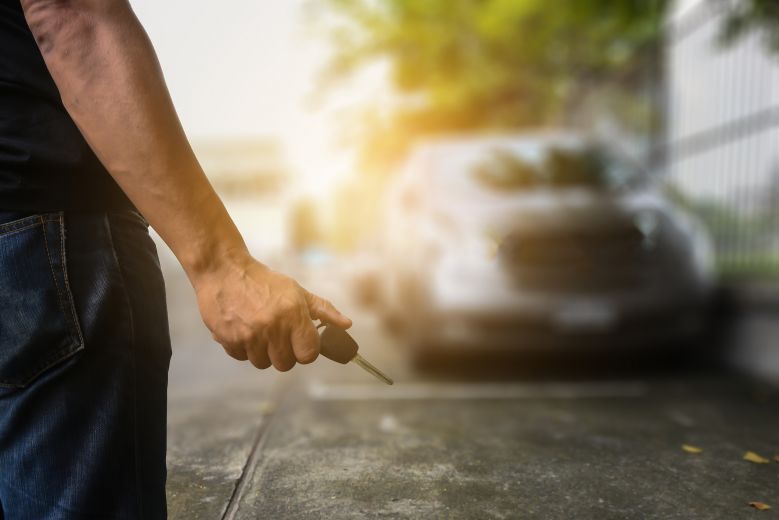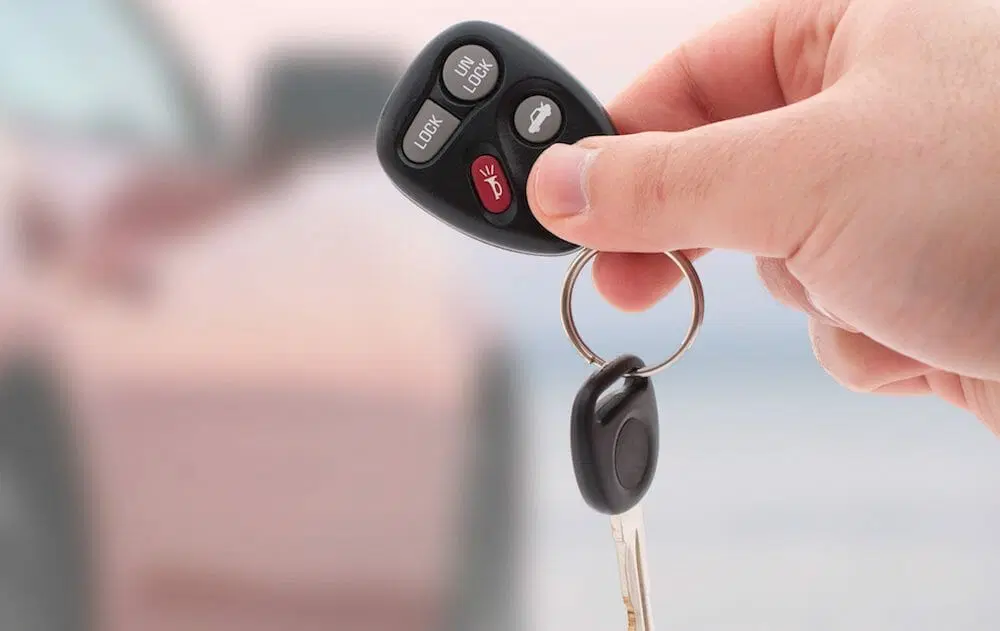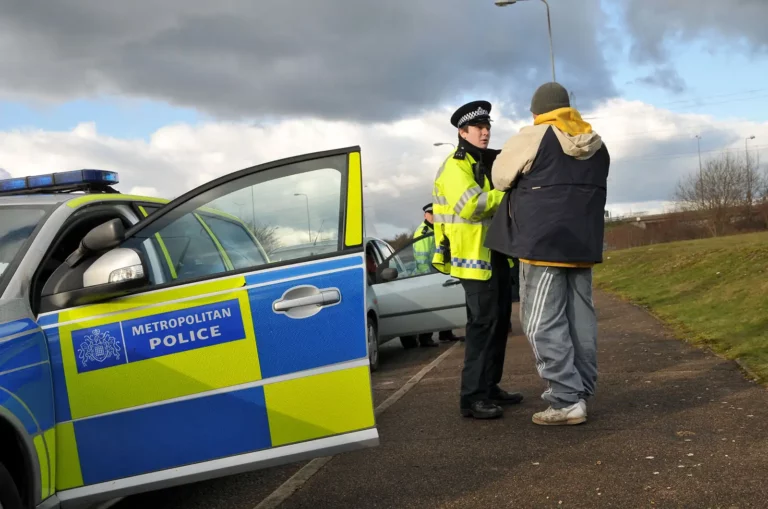Yes, in the UK, police can take your car keys in certain situations.
However, if you’re doing something unsafe like driving really badly or under the influence, or if your car is involved in something illegal, the police might take your keys. They could also do it if your parked car is causing a problem.
But here’s the key point: the police need a good reason to take your keys, and what they do should match the situation. If they take your keys, they have to tell you how and when you can get them back. If you’re not sure why they took your keys or what to do, it’s a good idea to talk to someone who knows about the law for help.
When Police Can Take Your Car Keys: A Simple Guide to Public Safety Measures

Here are a few situations where it might happen:
- Dangerous Driving: If a driver seems like they’ve had too much to drink or taken drugs, or if they’re driving really recklessly, the police might take the keys to stop them from causing an accident.
- No License or Insurance: When someone is caught driving without a valid license or proof of insurance, he might take the keys to make sure they don’t keep driving without the right paperwork.
- Stolen Cars: If the police find out a car has been reported as stolen, they can take the keys to prevent the thief from driving away.
- Arrest Protocols: If you find yourself being arrested, expect the officer to take your keys routinely. This step reduces the risk of you fleeing the scene or causing harm to yourself or others.
Thus, it’s important to know that depending on what’s going on, the police might also have the power to search the car for illegal stuff. If they find anything, they could keep both the car and the keys as evidence.
Ensuring Legal and Fair Procedures: Police Protocols When Taking Your Keys
Here are the steps that a police officer is obligated to follow when taking possession of your keys:
Establishing Valid Reasoning:
- Before taking any action, he must have a legitimate reason based on the situations mentioned earlier in this discussion.
Informing and Explaining:
- The officer is required to inform you clearly that they are taking your keys and provide a concise explanation for their action. This communication is fundamental to ensuring transparency and understanding.
Consent Request:
- In most instances, the police officer will seek your consent before taking your keys. However, it’s crucial to note that, even without your consent, they may proceed if there’s a legal justification for doing so.
Receipt Issuance:
- Following the key retrieval, he is obligated to provide you with a receipt for your keys. This document serves as your proof and allows you to reclaim your keys once the initial reason for their confiscation has been resolved.
Resolution and Retrieval:
- Lastly, the receipt becomes your key to reclaiming your keys. Once the underlying reason for taking them has been resolved, you can use the receipt to facilitate the retrieval process.
Constitutional Concerns Surrounding Key Confiscation by Law Enforcement
While police officers hold authority within their duty, constitutional limitations define the boundaries of their actions. When it comes to taking a person’s car keys, failure to adhere to proper protocol may give rise to several constitutional issues:
Fourth Amendment Challenges:
- It shields citizens from unreasonable searches and seizures. If an officer takes someone’s car keys without a valid reason, it could be deemed an unreasonable seizure, constituting a violation of the Fourth Amendment.
Fifth Amendment Implications:
- Further, It ensures citizens the right to due process of the law. Should a police officer take someone’s keys without a valid reason, it may be perceived as a violation of this fundamental right.
Fourteenth Amendment Safeguards:
- Also, it provides equal protection under the law. If a police officer takes keys based on the driver’s race, ethnicity, or other protected characteristic, it may be construed as a violation of equal protection rights.
So, it’s crucial to recognize that there are situations where a police officer may have legitimate grounds to take someone’s car keys, such as suspected driving under the influence or the vehicle’s involvement in a crime. However, even in such circumstances, the officer must possess probable cause or a warrant justifying the key seizure.
Temporary Seizure of Keys: Ensuring Public Safety Through Police Authority
Here are the scenarios where a police officer can legally take your keys:
- Reasonable Suspicion of Criminal Activity:
- If the officer has reasonable suspicion that you have committed or are about to commit a crime involving the use of a vehicle.
- Driving Under the Influence (DUI) Intervention:
- When you are driving under the influence of drugs or alcohol, and the officer aims to prevent you from getting back behind the wheel.
- Illegal Parking or Traffic Obstruction:
- If your vehicle is illegally parked or blocking traffic, and the officer needs to move it to a safer location.
In the end, temporary seizure of keys serves as a crucial tool for police officers to swiftly intervene in situations with potential danger or harm. It allows them to address risks promptly and maintain public safety. However, it’s imperative to note that the officer must have a valid reason for taking your keys, and they are obligated to return them to you as soon as possible.
Reclaiming Your Keys: A Guide to Retrieval Procedures
When law enforcement seizes your keys, a receipt is provided, encompassing essential details such as the officer’s name, badge number, and the location where your keys are secured. The return of your keys typically aligns with the resolution of the underlying reason for your seizure.
Scenarios and Retrieval Processes:
- You were arrested:
- Keys will be returned upon your release from jail.
- Your vehicle was impounded:
- Retrieval involves paying towing fees and presenting proof of ownership.
- Keys taken to prevent DUI:
- Waiting until sobriety is achieved may be necessary to retrieve your keys.
Moreover, consulting with a lawyer can provide insights into your options and help safeguard your rights. Understanding the procedures involved in key retrieval is crucial for individuals navigating law enforcement interactions.
Getting Your Keys Back After the Police Take Them: Simple Steps
It can be frustrating if a police officer takes your keys. Depending on the situation, getting them back might be quick or a bit more complicated. Here are some simple steps to follow if you need to retrieve your keys after the police take them:
- Ask the officer why they took your keys.
- Contact the police department for more information.
- Speak with a lawyer if needed.
- Pick up your keys at the police station if taken as evidence.
- Request their return if taken for a traffic violation.
- File a complaint if you think your rights were violated.
Consequences of Not Giving Your Keys to the Police: Keep it Simple
Here are some possible outcomes if you refuse to hand over your keys:
- Detention:
- If the officer thinks you broke a law, they might detain you until they get a warrant to search your car. Saying no to handing over your keys could lead to criminal charges for obstructing justice.
- Increased Suspicion:
- Refusing the officer’s key request may make them more suspicious, leading to a deeper search of your car or longer detention.
- Vehicle Impoundment:
- Police might impound your vehicle if they suspect a crime. Saying no to handing over keys increases the chance of your car being impounded.
Remember, police officers are there to keep the peace, and not complying might be seen as a threat to community safety. Feeling nervous is normal, but staying calm and respectful is crucial to avoid unnecessary problems.
Lastly, If you think your rights were violated, talk to a lawyer. It’s better to be cautious and follow the officer’s requests to resolve the situation quickly and avoid legal issues.
How Police Taking Keys Can Affect Legal Cases: Simplified

When a police officer takes someone’s car keys, it can make a big difference in legal cases, and sometimes charges may even be dropped. Here’s why:
- Fourth Amendment Protection:
- The Fourth Amendment says people can’t be unreasonably searched or have their things taken. If a police officer grabs someone’s keys without a good reason, any evidence they find might not be allowed in court.
- Unlawful Search and Seizure:
- If they take the key in an illegal search and seizure, any evidence they find may not be usable in court. This is a big deal for criminal cases as important evidence could be thrown out.
- Necessity:
- Sometimes, officers take keys because it’s necessary. For instance, if someone is suspected of driving dangerously under the influence, he might take their keys to prevent them from driving. In these cases, it could be seen as necessary to keep everyone safe.
FAQ’s
Can the police take your car keys in the UK?
Yes, the police in the UK can seize your car keys under specific circumstances, such as dangerous driving or when there’s a risk of the driver fleeing during a stop.
Can police take your car if they need it in the UK?
Yes, the police can seize a vehicle in the UK if it’s being used in a way that causes alarm, harassment, or distress, or if the driver lacks a proper license or insurance.
Can you refuse to exit your vehicle in the UK?
Yes, a police officer can reasonably request the driver or a passenger to exit the vehicle in the UK.
Can police take their cars home in the UK?
Yes, UK police officers may take official vehicles home if it passes the necessity test, designating them as ‘On-Call’ or ‘Available for Duty.’
Can UK police break down your door?
Yes, if the police have a search warrant in the UK, they can use reasonable force to enter and search premises.
What happens if you lose your car keys in the UK?
If you lose your car keys in the UK, you can contact locksmiths to get a replacement key, usually a generic one that can be programmed for your car.
Can police seize your phone in the UK?
Yes, the police in the UK have the power to seize a person’s mobile phone under specific circumstances, following strict guidelines and procedures.
What are my rights with police in the UK?
In the UK, the police can’t touch you without reason, search you without cause, force you to stay, or arrest you for not answering or walking away unless they believe you are acting antisocially.
Do UK police need a reason to pull you over?
Yes, the police in the UK have wide-ranging powers to stop vehicles, and they are allowed to stop a vehicle “for any reason” under the Road Traffic Act 1988
Final Words
The authority of the police to take car keys in the UK is grounded in specific circumstances aimed at ensuring public safety and preventing potential harm. Instances such as dangerous driving, driving under the influence, or suspicion of criminal activities provide the legal basis for the police to seize keys.
Furthermore, individuals must be aware of their rights and the lawful reasons for such actions. While the police have the power to take keys in certain situations, it is equally important for law enforcement to exercise this authority responsibly and proportionately.
Also, seeking legal advice in situations of uncertainty ensures that individuals understand their rights and can navigate the process of key retrieval effectively. The balance between law enforcement’s duty to uphold public safety and individuals’ rights is pivotal in maintaining a fair and just legal system.

